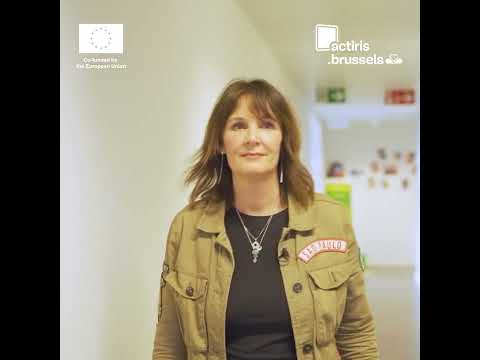How shared management works
The bulk of the ESF+ budget (€142 billion out of €142.7 billion) is designed and implemented in partnership between the European Commission, national and regional authorities and social partners and stakeholders with an approach of "shared management". This means that the responsibility for ESF+ management lies with both the Commission and Member States.
At the beginning of each seven-year programming period, the Commission and Member States agree on key priorities for ESF+ investment, which are set out in national or regional programmes. For example, a Member State and the Commission may agree that there needs to be further focus on youth unemployment or improving the state’s education system.
Once the programmes are agreed, Member States are responsible for implementing the planned actions – including selecting concrete projects for funding and paying project organisers. Member States allocate funding to a wide range of organisations – public bodies, private companies and civil society. The Commission monitors implementation, reimburses expenditure and is ultimately accountable for the budget.
Importantly, shared management works under the partnership principle, where partners and stakeholders should be associated at all stages from programming to implementation, monitoring and evaluation. This principle is key for ensuring that spending is as effective and efficient as possible.
A key principle of ESF+ shared management, co-financing allows that both the EU and a Member State’s budget contribute to the total budget of an ESF+ programme. Depending on the area of investment and the development level of the region in which the activities are taking place, the EU co-financing rate can vary between 50% and 95%.
Thematic concentrations
Under thematic concentrations, the EU is able to target specific, EU-wide needs. Resources under shared management can then be concentrated under these areas.
- Social inequalities and poverty remain a major concern. Member States should therefore allocate at least 25% of their ESF+ resources to promote social inclusion. In addition, the Fund for European Aid to the Most Deprived (FEAD) has been integrated in the ESF+ to provide food and basic material assistance. All Member States are obligated to devote at least 3% of their ESF+ resources to this aim.
- Youth unemployment has remained persistently high since the 2008 economic crisis, further increasing during the COVID-19 pandemic. All Member States must allocate an appropriate amount of their ESF+ resources under shared management to targeted actions and structural reforms in support of youth employment. Member States above the EU-average rate of young people aged 15 to 29 not in employment, education or training (NEETs) for the years 2017-2019 should devote at least 12.5% of their ESF+ resources to youth.
- Child-poverty levels remain unacceptably high, further rising as a result of the COVID-19 outbreak. The ESF+ requires Member States most affected by child poverty to allocate at least 5% of their ESF+ resources to implement measures to reduce it. All other Member States must allocate an appropriate amount to this end.
- The capacity of social partners and civil society is central to the successful implementation of the ESF+ and the policies the Fund supports. All Member States should allocate an appropriate amount to the capacity building of social partners and civil society. Member States that have a European Semester country-specific recommendation (CSR) in this area should allocate at least 0.25% of their ESF+ resources under shared management to this aim.
Member States will use the ESF+ to tackle the socio-economic crisis caused by the COVID-19 pandemic. The Fund will support the EU’s green, digital and resilient recovery from the crisis by driving investment in jobs, skills and services.



